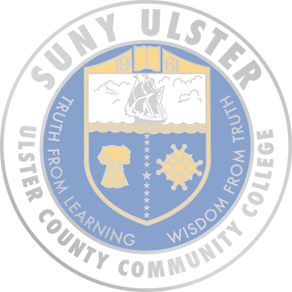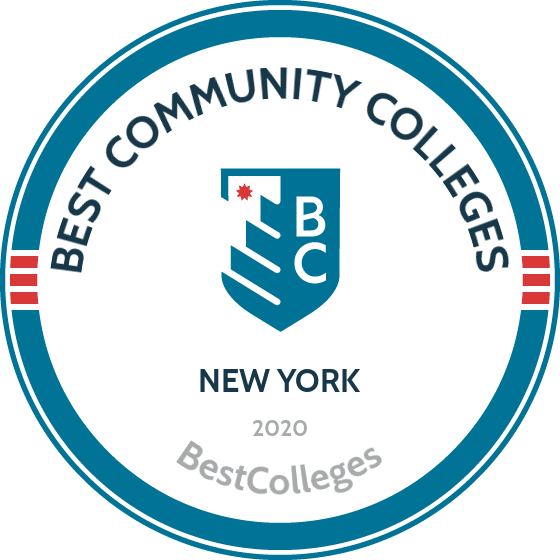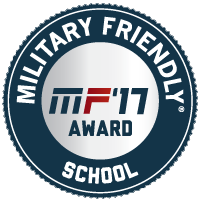Courses
215 courses found when searching within the Fall 2024 semester.
page = 5English Composition I
ENG 101
Students read, discuss, and write essays that explore contemporary social issues. Students work on skills necessary to meet the challenge of writing accurately and clearly on the college level. Emphasis is on the development of a topic, use of appropriate rhetoric and research, and a review of grammar. At the end of the semester, students must take a writing competency test, which is evaluated by a panel of instructors and constitutes 25% of students’ final grade for the course. A grade of C or better must be earned for advancement to ENG 102 and 227. Prerequisite: Placement by test.
English Composition II
ENG 102
Students read and discuss literature that explores the human condition and its moral dilemmas, social problems, and values. This course continues to stress the development of writing skills, with emphasis on criticism, analysis, research methods, and documentation. A passing grade on the research paper is required. Prerequisite: ENG 101 with a grade of C or better. Corequisite: LIB 111.
British Literature I
ENG 201
Students study the masterpieces of English literature from the Middle Ages through the 18th century. Students study the classics of English literature from the Middle Ages through the 18th century. Prerequisite: ENG 102 and LIB 111 with a grade of C or better, or by permission of instructor.
Intro to African Literature
ENG 222
This course is a survey of the literature, culture and thought of francophone Africa, exploring pre-colonial materials, colonial materials and post-colonial materials. Students will not only be expected to participate in web-based activities, monitored by their instructor, but will also be expected to work collaboratively with other students on-line. Prerequisites: ENG 102 with a grade of C or better and LIB 111, or by permission of instructor.
Creative Writing
ENG 225
Students explore the skills needed for successful creative writing. Students practice writing essays, short stories, poetry, and drama. This course is for students who have acquired a better than average facility in writing. Prerequisites: ENG 102 with a grade of C or better and LIB 111 or by permission of instructor.
Intro Enr Des: 3D Prototyping
ENR 103
Students are introduced to engineering design through a series of projects involving 3D modeling and 3D printing. While students will learn some CAD specific skills, the emphasis of the course is on the design process: define the problem, propose multiple solutions, develop the solutions, realize a prototype, test, and refine the design. Clear communication of specifications and solutions will be emphasized. This course is targeting engineering majors but is also designed for other majors who would like to work on interdisciplinary projects.
Intro Enr Design:Elem Robotics
ENR 105
Students are introduced to engineering design through a series of projects involving robotics and introductory microprocessor coding. While students will learn some programming specific skills, the emphasis of the course is on the design process: define the problem, propose multiple solutions, develop the solutions, realize a prototype, test, and refine the design. Clear communication of specifications and solutions will b emphasized. This course is targeting engineering majors but is designed for other majors who would like to work on interdisciplinary projects. Prerequisite: MAT 115.
Intro to Circuit Analysis
ENR 208
Topics in this course include element and interconnection laws, network theorems, circuit equations, and methods of solution (branch equations ,Ohm’s and Kirchoff’s laws, node and mesh equations, and Norton and Thevenin equivalents, superposition), transient and steady state responses, frequency response, resonance phenomena, and power. Op-amps and the phasor analysis of AC circuits are also covered. 3 hrs. lect. This course includes a 1 hr. lab (ENR 218) which is required. Corequisites: PHY 110 and MAT 204 or by advisement.
Engineer Mechanics:Statics
ENR 215
Both the classical and vector approaches in the application of physics to practical engineering analysis are featured in this course. Students learn the principles of static equilibrium of rigid bodies. Topics include force systems, couples, first- and second-moments, centroids, friction, and free body diagrams. Application areas include trusses, frames, machines, cables, and other structures. 3 hrs. lect. Prerequisites: PHY 109 and MAT 180.
Intro Circuit Analys Lab
ENR 218
This is a one-semester hour laboratory in support of ENR 208. The laboratory is required for computer engineering and electrical engineering majors and optional for all other students.
Earth's Atmosphere & Oceans
ESC 101
Designed for the non-science major, this course provides an introduction to Earth Science through an examination of the Earth’s atmosphere and oceans. Topics covered include the Earth-Sun system, the structure and composition of the Earth’s atmosphere, global circulation patterns, severe weather, global climate change, physical oceanography, shoreline processes, and the seafloor and plate tectonics. Due to overlap of material, this course may not be taken for credit by students who take GEG 101. Prerequisite: MAT 095 or higher with a C or better
History of Life
ESC 103
Designed for the non-science major, this course provides an introduction to the over 3.5 billion-year history of life on planet Earth as preserved in the geologic record. This course will examine the origin of life on Earth, how life on Earth has changed dramatically through time by the mechanism of evolution, the influence of plate tectonics and other geologic forces on the evolution of life, how organisms are preserved as fossils in sedimentary rocks, famous fossil localities, and the impact of mass extinction events in the geologic record. This course includes a Saturday field trip. 3 hrs. lect. Pre or Corequisite: ENG 101.
Physical Geology
ESC 104
This course is an introduction to physical geology and a study of Earth materials and the physical processes that alter them over time. Topics covered include minerals; igneous, sedimentary, and metamorphic rocks; earth resources; plate tectonics; earthquakes; volcanism; weathering and erosion; streams; groundwater; glaciers and the Ice Age; desert landforms; and shoreline processes. In the laboratory, students learn to identify common minerals and rocks, to use topographic and geologic maps, and to recognize structures and landforms in the field. This course includes several local field trips during regular lab time and an all-day Saturday field trip. 3 hrs. lect.; 3 hrs. lab. Pre or Corequisite: ENG 101 and MAT-115 or higher.
Intro to Commercial Sewing
FAS 103
This course teaches professional sewing techniques employed in the fashion business. Learn to sew and produce garments that are properly finished to industry standards. This course includes pattern layout, cutting, construction, and finishing of garments. Attendees will draft and utilize commercial patterns on a variety of projects utilizing industrial machinery and hand sewing. Fabric materials, core characteristics, and handling are also introduced in this course.
Elementary French I
FRE 101
An introductory course for beginners, Elementary French I uses a four-skills approach (listening, speaking, reading, and writing) and emphasizes communication in French. Regular practice with language tapes and videos forms an integral part of the course. FRE 101 is not open to students with two or more years of high school French without advisement.
Elementary French II
FRE 102
A second-level course for students who already have some knowledge of French, Elementary French II focuses on using the pass compos and the imparfait to talk about the past. In addition, students learn to use the future, conditional, and subjunctive to communicate in French. Regular practice with language tapes and videos forms an integral part of the course. Recommended: Two years of high school French or the equivalent of FRE 101 or FRE 110.
First Year Experience
FYE 101
This course exposes students to various skills, techniques and strategies that have been identified as high impact practices most likely to positively impact college success. These skills include knowledge and tips on college transition, planning, note-taking, studying, time management, technology, awareness as self-learners and other academic skills as well as thorough gaining an awareness of campus resources available to support student success. This course is also designed to integrate foundational SUNY Ulster Institutional Learning Outcomes (ILO's) into each new student's learning experience. This one-credit course is required for all first time college students matriculated in a degree program, including Early College students, former Collegian students now attending the College and students with no prior college experience. Students who matriculate prior to accumulating 12 credits will be required to take this course the semester of matriculation. Students who are currently enrolled in or have completed KEY 103 or COS 101 have met the requirement for FYE 101.
Physical Geography
GEG 101
Basic principles of geographic location, climatic conditions, and landforms as they influence climates, weather, vegetation patterns, streams, groundwater, environmental concerns, and soils are covered in this course. Emphasis is on the inter-relationships of these principles with the distribution of the world's population and people's use of the Earth. The course includes a Saturday field trip.
Intro to Green Buildings
GRB 110
In this course, students study the principles, methods, and equipment associated with sustainable building systems and design. Topics include ecological design, energy efficiency, passive and renewable energy, water conservation and treatment, sustainable site selection, green building materials, indoor and outdoor environmental quality, and building assessment tools.
Intro to Renewable Energy Sys
GRB 120
In this course, students study the principles, methods, and equipment associated with renewable energy systems. Topics include solar, wind, biomass and biofuels, fuel cells, hydropower, oceanic energy, geothermal, and energy storage. Nonrenewable energy sources, climate change, and the economics and politics of energy are also discussed.
page = 5




